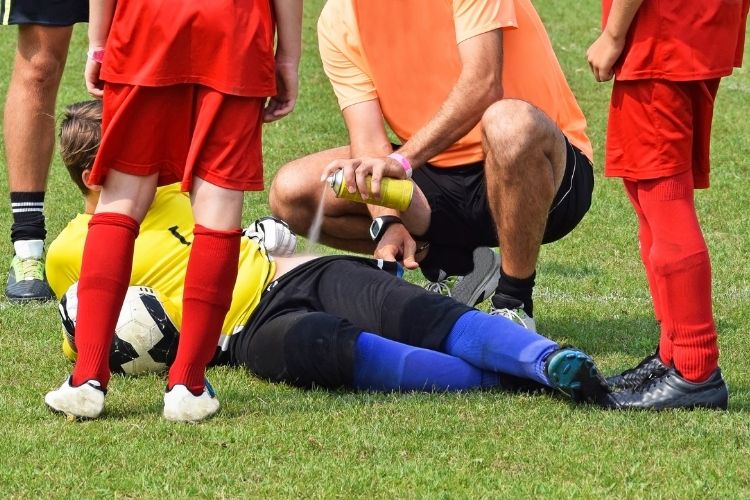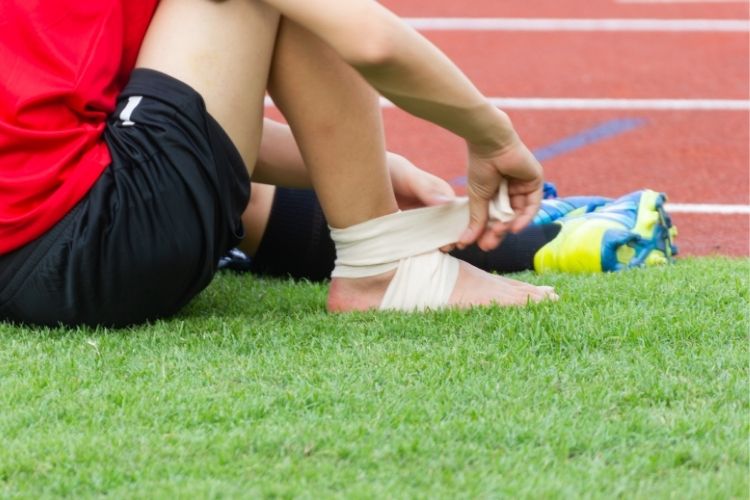Football is loved by millions globally, yet this dynamic sport also poses certain injury risks for its players. In this article, we will delve into football injuries, explore the most common types of injuries, and present effective methods to prevent them.
Introduction: The Risky Side of Football
Although football is an exciting activity that promotes teamwork and competition, it also exposes players to high-paced and physically demanding situations. These situations inevitably increase the risk of various football injuries. However, with the right precautions and knowledge, these risks can be minimized, allowing players to participate more safely on the field.
Hamstring Injuries
Hamstring injuries are among the most frequent ailments in football players. This injury occurs due to the overstretching of the muscles at the back of the thigh and is typically caused by sudden accelerations or stops. A player with a hamstring injury will experience severe pain and limited mobility.
ACL Tears
Anterior Cruciate Ligament (ACL) tears are serious injuries in football. The ACL is one of the main ligaments that stabilize the knee and can tear due to improper stepping or twisting movements. Such an injury may require a long rehabilitation period and can negatively impact a player’s career.
Ankle Sprains
Ankle sprains are common injuries in football, usually occurring when the ankle is twisted abnormally, leading to strained or torn ligaments. This injury causes both acute pain and can lead to long-term mobility issues.

Section 2: Injury Prevention Techniques
Warm-Up Routines
Proper warm-up routines before training and matches can significantly reduce the risk of injury. Warming up makes the muscles more elastic and prepares the body for more strenuous physical activities.
Strengthening Exercises
It is particularly important for football players to strengthen their leg, abdominal, and back muscles. Such strengthening helps make the body more resilient and offers protection against injuries.
Flexibility and Stretching
Regular stretching and flexibility exercises help make the muscles and tendons more pliable, thus reducing the risk of injury. Activities like yoga or pilates can also be beneficial for increasing a player’s flexibility.
Section 3: Injury Prevention Equipment
Quality Shoes and Supports
Football shoes should provide proper ankle support and be suitable for the playing surface to offer maximum protection.
Protective Gear
Shin guards and other protective equipment play a critical role in minimizing impacts and injuries. Players can protect themselves in physically intense situations by using such equipment.
Technological Advancements11
Wearable technology can be used to monitor players’ performances and detect early warning signs of potential injury risks such as overexertion and fatigue.
Section 4: Post-Injury Recovery and Rehabilitation
Early Intervention and Treatment
Immediate care after an injury significantly affects the recovery process. Applying ice, keeping the injury elevated, and rest are crucial steps to take in the first hours.

Rehabilitation Programs
Working with physiotherapists is particularly crucial following serious injuries like ACL tears. Customized exercise programs help the player regain health and return to the field.
Mental Health and Motivation
Recovery periods can be mentally challenging for players. Psychological support and motivational activities are of great importance during this time.
Conclusion: Managing Injuries
For football players, injury prevention techniques and early intervention are essential for on-field success and long-term careers. Proper training, equipment, and awareness can reduce injury risks and make enjoying football safer.
This blog aims to provide footballers and coaches with the necessary information to reduce injury risks and stay healthy. You can also contribute to raising awareness about this important issue by sharing your experiences and prevention tips in the comments section below.


